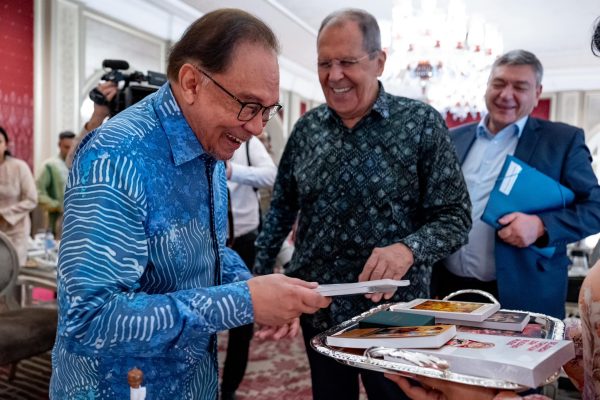Malaysia’s Strategic Maneuver: Seeking BRICS Membership for Economic and Global Equilibrium
KUALA LUMPUR, Malaysia — In a significant geopolitical move, Prime Minister Anwar Ibrahim has announced that Malaysia has formally applied for membership in the expanding BRICS grouping. The application was directed to Russia, which currently holds the chairmanship of the organization.
The announcement came after discussions with Russian Foreign Minister Sergey Lavrov, who concluded a two-day visit to Malaysia last Saturday. "Malaysia has sent a letter of application to join the BRICS organization to Russia as the BRICS chairman, besides expressing openness to participate as a member country or strategic partner," stated Anwar’s office, as reported by the state news agency, Bernama. Russia subsequently confirmed the receipt of the application and indicated it would "actively support" Malaysia’s integration into the grouping.
Contextualizing BRICS
BRICS, an acronym initially standing for Brazil, Russia, India, and China, was established in 2009 to foster cooperation among emerging economies. South Africa joined the bloc in 2010, transforming it into BRICS. Recently, the group has expanded further to include Egypt, Ethiopia, Iran, and the United Arab Emirates, alongside numerous other nations expressing interest.
The collective economic might of BRICS is substantial. The member countries account for approximately 28 percent of global GDP. This economic clout is why Anwar’s administration views potential BRICS membership as a golden opportunity for Malaysia. According to an academic from Universiti Teknologi Mara, as quoted in the New Straits Times, sectors where Malaysia holds a competitive advantage – such as palm oil, rubber, and electronics – could gain significantly from the increased market access to BRICS nations.
Building a Diverse Economic Strategy
Malaysia’s move to join BRICS aligns with its broader strategy of diversifying its economic and political partnerships. Currently, Malaysia is a member of the Comprehensive and Progressive Agreement for Trans-Pacific Partnership (CPTPP) and the Regional Comprehensive Economic Partnership (RCEP). These memberships demonstrate Malaysia’s commitment to bolstering its market access and playing an active role in global trade networks. Additionally, Malaysia maintains bilateral free trade agreements with countries such as Japan, Turkey, Pakistan, and Australia.
Interestingly, Anwar’s push towards BRICS membership also underscores his administration’s nuanced stance on global geopolitics. Anwar has expressed skepticism regarding the U.S.-led "rules-based international order," particularly in relation to contentious issues like the Israel-Palestine conflict. This skepticism is combined with a desire to see Malaysia play a prominent role within a cohort of rising Global South nations. In a recent Facebook post, Anwar hailed current shifts in global power dynamics as an evolving landscape where diverse voices and viewpoints are increasingly acknowledged.
The historical context further enriches understanding of Malaysia’s move. Anwar has drawn parallels to the Asia-Africa Bandung Conference of 1955, which featured prominent leaders such as Zhou Enlai, Sukarno, and Nyerere advocating against colonial and neo-colonial tendencies. These sentiments resonate today as Malaysia seeks to ensure it maintains balanced, equidistant relations between competing strategic and economic blocs.
Future Implications
While BRICS’s cohesion and ability to serve as a counterbalance to the G-7 group of wealthy nations remain subjects of debate, Malaysia’s prospective membership could certainly enhance its economic stance. This step is seen as a proactive measure to augment Malaysia’s influence on international platforms, embodying Anwar’s vision of a globally balanced foreign policy.
In sum, Malaysia’s bid for BRICS membership is not merely a quest for economic opportunities but a strategic move to position itself more favorably on the global stage. As the dynamics of international relations continue to evolve, Malaysia under Anwar’s leadership is striving to navigate these changes adeptly, seeking to ensure that its voice and interests are both recognized and respected.
Stay tuned for further developments as BRICS continues to reshape the landscape of global economic cooperation. For more information about BRICS and its history, you can visit the organization’s official website here.
